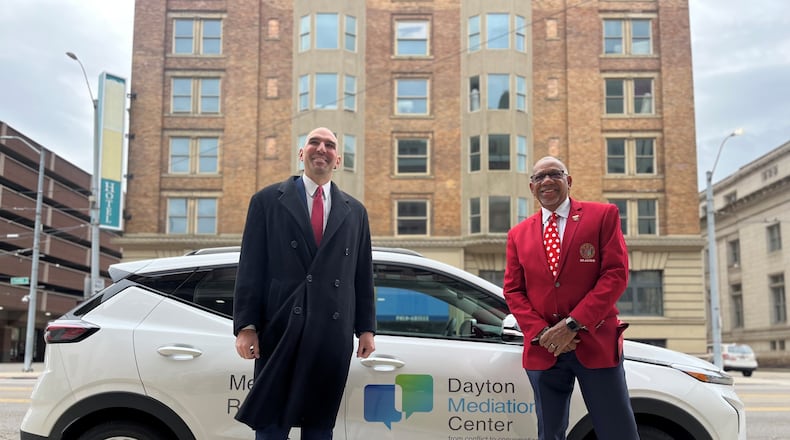Dayton leaders said the city’s goal is to have all-electric vehicles by 2035, which officials say will cut costs while benefitting the environment through reduced carbon emissions.
The city estimates it could cost more than $21 million at today’s prices to replace its roughly 525 sedans, sport utility vehicles and compact and light pickup trucks. Heavier-duty vehicles likely would carry even higher average costs.
“This is exciting as we move closer and closer to more and more sustainability,” said Dayton Mayor Jeffrey Mims Jr. “The city has been working tirelessly at this for some time.”
The city paid about $28,700 for each of the Chevrolet Bolts, or about $143,500 total.
They are the city’s first all-electric vehicles. The city purchased a Chevy Volt in 2014, but that was a plug-in hybrid.
Electric cars reduce fuel costs, which increased sharply earlier this year, while also helping combat global warming, said Mayor Mims.
Mims said the city hopes all municipal vehicles will be electric powered within the next 13 years.
Dayton City Commissioner Matt Joseph said he’s talked with city staff probably for the last decade about the importance of electrifying the city’s fleet.
He said electric vehicles are cheaper to maintain and have lower energy costs.
He said each of these vehicles should save the city roughly $1,000 annually in lower costs.
The Chevy Bolts get 248 miles per charge, which should be plenty sufficient for how these vehicles will be used, Joseph said.
The new vehicles will be powered by electricity the city buys from renewable hydroelectricity sources, which means they will run completely carbon free, Joseph said.
The city has more electric vehicles on the way. The city commission earlier this year approved buying the city’s first all-electric pick-up truck.
But supply-chain issues have led to assembly and delivery delays.
Dayton last year declared a climate emergency and is exploring investments in solar and other renewable technologies at some city facilities. The city is working to expand its network of public electric-vehicle charging stations.
About the Author



